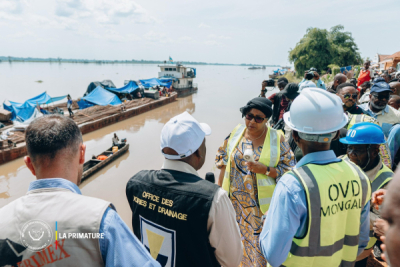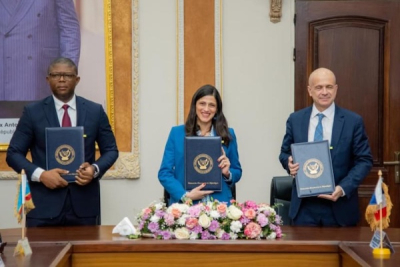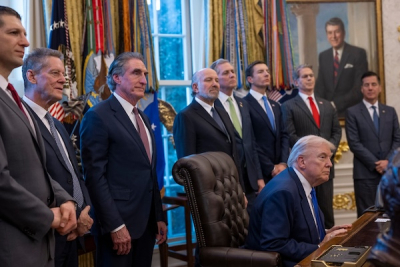Kory Webster is the new CEO of Africell DRC, the Congolese subsidiary of US-based Africell Group. In a press release dated May 19, 2025, the group announced the appointment. Webster succeeds Milad Khairallah, who has headed Africell DRC since November 2018. This leadership change signals Africell’s determination to strengthen its competitive position and seize emerging opportunities in Central Africa’s evolving telecom landscape.
Webster, a US citizen, has almost 30 years of experience in the telecom industry. Before coming to Kinshasa, he served two years as Chief Operating Officer of Africell Angola. He also held senior management roles at Sprint and Claro, in the US and the Caribbean.
Webster’s vision for Africell RDC, outlined in a roadmap he shared on LinkedIn, is clear: he intends to ensure the growth of Africell DRC by strengthening its market share in a particularly competitive environment, a challenge underscored by the latest figures from the Autorité de Régulation de la Poste et des Télécommunications du Congo (ARPTC).
In 2024, Africell posted sales of $80.6 million, representing just 3.8% of the Congolese telecoms market—a 3% drop from the previous year’s $83 million. The operator remains at the bottom of the market, trailing Airtel (35.5% of revenues), Vodacom (32.6%), and Orange (28.1%).
Action Plan
Subscriber data paints a similar picture. Africell counted only 3.8 million active users—those who placed at least one call in the last 90 days of 2024—giving it a 6% market share. Vodacom leads with 36%, while Orange and Airtel are nearly tied at 29% each.
To reverse this trend, Webster has laid out an ambitious action plan: increase average revenue per user with value-added services, mobile money, and digital platforms; improve operational efficiency; reduce churn by optimizing sales channels, cost structures, and retention strategies; and expand network coverage, especially in underserved areas.
Africell has already made strides in this direction. In November 2023, the operator launched services in North Kivu, South Kivu, and Tanganyika, bringing its footprint to 14 of the country’s 26 provinces.
Webster steps in at a pivotal moment, as the United States seeks to position Africell as a key player in the Lobito Corridor, a major rail project linking Zambia, the DRC, and Angola. Africell is receiving funding to extend its network in Angola and modernize infrastructure in the DRC—two of the three countries traversed by the corridor.
This article was initially published in French by Timothée Manoke (intern)
Edited in English by Ola Schad Akinocho










